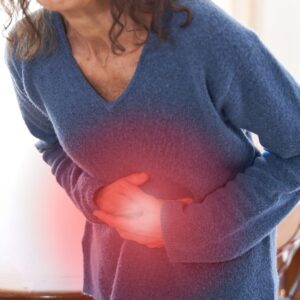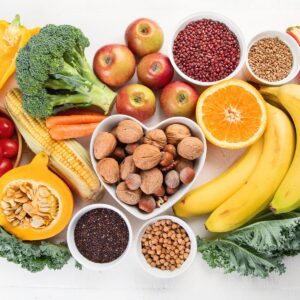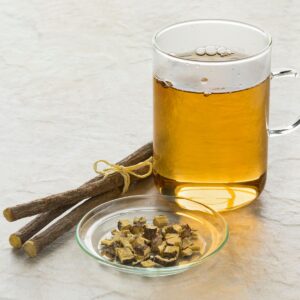Blog
8 Natural Steps to Heal IBD: Reverse Crohn’s and Ulcerative Colitis Naturally
Inflammatory Bowel Disease (IBD), which includes Crohn’s disease and ulcerative colitis, is more than just a gut issue—it’s a chronic autoimmune condition that impacts your entire body. With symptoms like abdominal pain, diarrhea, weight loss, fatigue, and even joint or skin issues, IBD can significantly reduce your quality of life.
But there’s hope. More and more research points toward the power of diet and lifestyle in managing, and in some cases, reversing gut inflammation. In this blog, you’ll learn what science says about healing the gut naturally and how you can reclaim your health—starting with what’s on your plate.
Understanding Crohn’s and Ulcerative Colitis
Both Crohn’s disease and ulcerative colitis are autoimmune disorders where the immune system mistakenly attacks the body—specifically, the digestive tract.
- Crohn’s disease can affect any part of the GI tract from mouth to anus.
- Ulcerative colitis primarily affects the colon (large intestine).
Some people may experience symptoms of both, which makes diagnosis and treatment more complex.
Common Symptoms of IBD

- Chronic or alternating diarrhea and constipation
- Blood, mucus, or undigested food in stool
- Abdominal cramps, especially after eating
- Bloating, gas, and indigestion
- Fatigue and brain fog
- Joint pain, skin conditions, thyroid issues
- Eye inflammation and mood disorders
Your gut health is deeply connected to your immune, hormonal, and neurological health. Healing your gut can bring relief to multiple areas of your body.
What Causes IBD? It’s More Than Just Genetics
While genetics may set the stage for IBD, your environment and lifestyle choices are the true triggers. Here are the top culprits:
Environmental and Dietary Triggers
- Processed foods, sugar, additives
- High fat foods
- Environmental toxins (plastics, cleaning agents, water contaminants)
- Imbalanced gut bacteria, overgrowth of harmful bacteria, yeast, and viruses.
- and chronic stress
These factors activate the underlying genetic tendencies, triggering inflammation and flare-ups.
Some triggers that could lead to flare-ups:

- Common irritants like caffeine, dairy, high-fat or spicy foods
- Hard-to-digest fiber (nuts, seeds, raw fruits/veggies)
- Acidic foods and cruciferous vegetables like broccoli or cauliflower
Important Note: If you’re on medications like immunosuppressants, do not stop them abruptly. Start applying the natural strategies below, and consult your doctor before making any medication changes.
8 Steps to Naturally Heal IBD
1. Follow a Healing Diet Protocol
In general, studies show that in order to achieve remission, most patients do well following a well-built, low-fat, low-fiber diet plan suitable for patient needs.
Stage 1: The Soft Diet (2 Weeks)

Best during flare-ups—diarrhea, bleeding, or severe pain.
Focus on the liquid texture of nutrition:
- Bone broth 2–3x/day (collagen + gut-healing nutrients)
- Smoothies with organic, low-allergen protein powders
- Fiber-free vegetable juices (carrot, beetroot, cucumber)
- Blended, well-cooked foods—purees and soups
Stage 2: The Elimination Diet (2 Months)
Helps you identify and remove personal trigger foods.
Avoid:
Gluten, dairy, sugar, soy, corn, Hydrogenated oils and peanuts
Embrace:
- Oats, white rice, potatoes
- Lean proteins (chicken, fish)
- Eggs if tolerated
- Cooked legumes (if tolerated)
- Soft fruits like banana, papaya, melon
- Cooked vegetables: zucchini, carrots, squash (no peels or seeds)
Keep a food diary to learn your body’s unique tolerances and avoid unnecessary restrictions.
2. Gut Detox: Kill Off Harmful Microbes
Most IBD patients struggle with bacterial or yeast overgrowth. Clearing these out is key.
Try:
- Wild oregano oil: Start with 5 drops/day, increasing to 3x/day over 3–6 weeks if tolerated
- Alternative: Olive leaf extract (gentler for sensitive stomachs)
3. Rebuild Your Microbiome
A healthy gut depends on diverse beneficial bacteria.
Top Tips:
- Use probiotics with 8+ species (e.g., VSL#3)
- Support missing strains like Akkermansia muciniphila by taking prebiotic supplements (low-fiber, gut-friendly)
4. Boost Digestive Function
People with IBD often have:
- Low stomach acid
- Weak enzymes
- Poor bile production
Solution: Take digestive enzyme supplements before meals (2–3x/day) for 6–8 weeks.
5. Heal and Rebuild the Gut Lining

Ongoing inflammation causes microscopic wounds in the intestines.
Best Gut-Healing Supplements:
- Aloe vera juice (DIY: blend aloe gel with coconut water)
- Collagen peptides
- L-glutamine
- Marshmallow root and licorice (DGL)
These work synergistically to soothe and regenerate tissue.
6. Address Nutrient Deficiencies
Due to poor absorption, many IBD patients are deficient in essential vitamins and minerals.
Common Deficiencies:
- Iron: leads to anemia
- Vitamin D: impacts immunity and bone health
- Vitamin B-complex: essential for nerves and mood
- Calcium: supports bone density
Get tested and supplement accordingly, especially with iron + vitamin C, D3 (5000–10,000 IU), and a high-quality multivitamin.
7. Reduce Toxic Exposure
Limit contact with and consumption of:
- Processed foods and unhealthy fats
- Plastics (switch to glass/stainless steel)
- Toxins in water, cosmetics, and cleaning products
8. Prioritize Emotional and Mental Health
Your emotional state can either fuel inflammation or promote healing.
Recommendations:

- Aim for 7–9 hours of sleep nightly
- Incorporate stress-reducing activities like yoga, nature walks, or journaling
- Seek therapy if needed—mental health support is vital for long-term healing
Final Thoughts: Healing Is a Journey, Not a Shortcut
Healing Crohn’s disease or ulcerative colitis naturally requires patience, consistency, and a personalized approach. Each body is different, but with the right strategy, remission is possible.
Remember:
- Don’t stop medications abruptly
- Apply these eight steps for 2–3 months
- Re-evaluate with your doctor and consider adjusting treatment accordingly
Don’t forget to subscribe to the complete Crohn’s and Ulcerative Colitis Healing Protocol for exclusive access to meal plans, supplement guides, and personalized steps for natural recovery:
click here and join now – crohn’s and ulcerative colitis protocol
If you need more details about irritable bowel disease, watch the full episode on Dr. Fajer AlJumairi’s YouTube channel:

